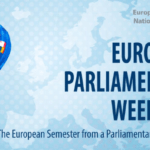Although international aviation and shipping each account for less than 3.5% of the EU’s total greenhouse gas emissions, they have been the fastest growing sources of emissions that contribute to climate change.
This is mainly due to record traffic growth driven by increasing passenger numbers and trade volume. These sectors also only recently became part of efforts to cut greenhouse emissions, both at EU and global level.
In a resolution adopted ahead of the COP25 climate summit, the European Parliament called for more ambition in cutting emissions from aviation and shipping, for instance by strengthening market-based measures aimed at reducing greenhouse gas emissions.
Air and sea traffic on the rise
Emissions from international aviation and shipping have increased by nearly 130% and 32% respectively over the past two decades. This was the fastest growth in the whole transport sector – the only sector in which emissions have risen since 1990. They have been largely driven by traffic growth. The number of air passengers in the EU has tripled since 1993 and the volume of international maritime trade has also increased significantly over the last two decades.
Despite improvements in fuel consumption, emissions from planes in 2050 are expected to be 7 to 10 times higher than 1990 levels, while emissions from ships are projected to increase by 50% to 250%.
Growing environmental concerns could prompt more people to pay attention to the carbon footprint of their mode of transport. So far just over one in ten say they do so, according to a Eurobarometer survey.
Measures
The EU has taken steps to reduce aviation emissions through its Emissions Trading System. In addition, Parliament wants to include maritime sector in this system. Today, under EU and global rules, owners of large ships are obliged to provide information about CO2 emissions from their ships as well as the fuel consomption.
The EU is also working with the International Civil Aviation Organization to implement a global market-based measure, known as Corsia, whereby airlines could offset their emissions by investing in green projects, for example by planting trees.
More information
Transport Emissions 2017 Infographic
Evolution of greenhouse emissions by sector Infographic







Leave a Reply